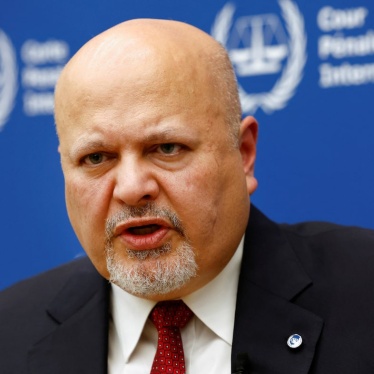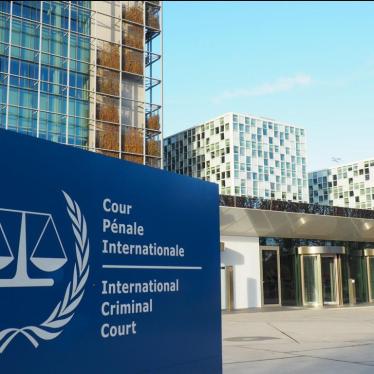Dear Prime Minister Harper,
I write to urge the Canadian government to speak out more forcefully on behalf of Mohamed Fahmy, a dual Canadian-Egyptian citizen and an employee of the Al Jazeera English television network who, as you will know, has been jailed in Egypt since December 29, 2013, on charges that stem solely from his work as a journalist.
Fahmy and his Australian colleague Peter Greste were each sentenced to seven years in prison on June 23, while a third Al Jazeera English employee, Egyptian Baher Mohamed, was given a 10-year sentence. Soon, all three will have served a year behind bars for actions that should never be considered crimes.
These three journalists were performing their essential role as reporters in a country undergoing deep conflict and immense change, and for that they became targets of an Egyptian government that has shown itself eager to silence anyone who might amplify voices of dissent. As employees of a network that gave voice to opponents of the government, including the Muslim Brotherhood, they were falsely accused of membership in a “terrorist organization.”
On January 1, a Cairo court will hear Fahmy, Mohamed and Greste’s appeal, providing what may be a ripe opportunity for President Abdel Fattah al-Sisi to correct the deeply flawed verdicts in this case. Al-Sisi has given some indications to suggest that he disapproves of the convictions, asserting, for example, that he would have ordered the three men deported rather than charged had he held power at the time. On November 12, he issued a decree that would allow him to deport non-Egyptian defendants to their home countries if he considers that it is in Egypt’s national interest to do so, irrespective of whether they have been tried and convicted. Al-Sisi also has the power to release convicted prisoners under presidential pardons once they have exhausted all other remedies in the courts.
Consequently, Human Rights Watch believes that now is a good time for you to a make a strong, public call to the Egyptian authorities to ensure that Fahmy, as well as the other journalists jailed with him, is released. Until now, Canada’s public response to the verdicts has been muted compared to that of other states. Australian Prime Minister Tony Abbott, for example, is reported to have personally lobbied al-Sisi to release Greste, including during a face-to-face meeting on the sidelines of the United Nations General Assembly in September. His foreign minister, Julia Bishop, had earlier said her government was “shocked” by the Egyptian authorities’ action. British Prime Minister David Cameron and his then-Foreign Secretary William Hague said they were “appalled” by the sentences against the journalists. The United States, which has no citizens involved in the case, condemned the trial court’s verdicts against the journalists and called for al-Sisi to either pardon them or commute their sentences to secure their immediate release. Secretary of State John Kerry told his Egyptian counterpart that the sentences were “chilling and draconian” and could not stand “if Egypt is to move forward.”
In contrast, Canada issued only one official statement after the verdict, from junior minister Lynne Yelich, who said the Canadian government was “very disappointed” and “concerned that the judicial process that led to [Fahmy’s] verdict is inconsistent with Egypt’s democratic aspirations.” Yelich said that Canada would continue to raise Fahmy’s case with senior Egyptian officials and to provide consular assistance to him. Foreign Affairs Minister John Baird, who has previously expressed doubt that “bullhorn diplomacy” would yield positive results for Fahmy, said that Fahmy’s dual citizenship meant he was “subject to Egyptian law” while in Egypt.
But dual citizenship has not hindered your government from calling strongly for justice for its citizens in the past. In 2007, after Huseyin Celil, a Canadian and Chinese citizen, was arrested in Uzbekistan, extradited to China, and sentenced to life in prison on terrorism charges, you said: “We view Mr. Celil as a Canadian citizen. At all opportunities, we have taken the time to raise his case, to express our concerns, to demand that justice be done.” There are equally strong reasons that you should make that same demand for Fahmy.
Since al-Sisi led the military overthrow of President Mohamed Morsy in July 2013, Egypt’s civilian and military courts have been hard at work suppressing political opponents and other voices of dissent with heavy handed verdicts often based on little if any evidence. One judge has handed down mass death sentences on multiple occasions, while another has given multi-year prison sentences to peaceful protesters. Other judges hold defendants for months in pre-trial detention on repeatedly renewed but baseless orders. During the trial of Fahmy, Greste and Mohamed, prosecutors failed to present any evidence of wrongdoing, instead airing the journalists’ previous work or, at times, seemingly random pieces of media that had nothing to do with them at all, including “videos of trotting horses from Sky News Arabia, a song by the Australian singer Gotye, and a BBC documentary from Somalia,” according to the Guardian newspaper.
The charges included editing video footage to falsely “give the appearance Egypt is in a civil war,” operating broadcast equipment without a license, and membership in and support for a “terrorist organization.” Human Rights Watch, which reviewed the material prosecutors presented in court and spoke with independent observers who monitored the trial, found no evidence indicating any acts that could be legitimate crimes, rather than exercise of free speech and the profession of journalism.
During his time in custody, Fahmy’s health has worsened. He suffers from Hepatitis C and a shoulder injury that has grown worse with his confinement, according to his lawyers. His family has said that his arm will never be fully functional and that he still suffers from pain. His lawyers, who have called for his temporary release on health grounds, say he needs "complicated correctional bone surgeries that also require extensive recovery and support not readily available in prison."
Though the defendants hope for a favorable verdict from the appeals court on January 1, there is no guarantee – especially amid Egypt’s polarized political atmosphere, and with judges repeatedly flouting due process rights – that their sentences will be reduced or vacated. If Egypt’s judiciary is unwilling to set aside such flawed verdicts, Canada should call forcefully and publicly for al-Sisi to take executive action to pardon and release Fahmy and his colleagues.
Sincerely,
Sarah Leah Whitson
Executive Director
Middle East and North Africa division
Human Rights Watch






